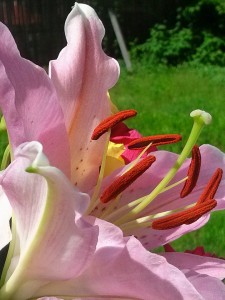Day 8, Day 7/6, Days 5, Day 4, Day 3, Day 2, Day 1/Intro Note: Please forgive grammar errors/typos which are all mine.
Day 9 / Aha
“Sometimes the first system we have to change is our own.”
I heard that from Emily Read Daniels at a workshop I attended last fall. The topic was trauma-informed change but instead of taking on the world “out there” we started by getting centered on/in ourselves, and with one another.
I tend to hold my breath. I have to remind myself that breathing in and out isn’t optional. I don’t always know how to stop, pause, relax, or feel my belly rise or fall.
But I really want to breathe in for a moment and celebrate the successes and the wins. I want to hop off the what-next-what’s-wrong -what-still-needs-to-change train, in general, and more specifically in the after Oprah on 60 Minutes moment, we’re collectively in.
There’s much left to do.
It’s true. A LOT!
But there are huge wins as well. Wins some have fought decades and lives and careers for.
So many of us are talking about developmental trauma and post-traumatic stress and adverse childhood experiences. Win.
We’re learning more and we’re sharing, too. It’s coming up at home and at work. That’s not always been true for all of us. Double win.
It means, this week more teachers already better understand why some kids can’t sit still, focus, and learn. Win.
It means some teachers and school staff and administrators will understand how much students are carrying in their bodies 24/7. Win.
ACEs will seem relevant to what does/doesn’t happen in all classrooms and not something to outsource to the guidance counselor, school nurse, or adjustment counselor. Instead, it will be an issue that impacts learning and something all in the school can be aware of, sensitive to, and empowered to do stuff about. HUGE WIN! That’s right past third and sliding into home.
But it’s more.
Parents will have a better idea of what does and don’t help children be happier and healthier from childhood through forever. Parents know more about why and how attachment and affection won’t spoil, ruin, or soften. WIN. And why, in fact, those things can be protective and strengthening. EPIC!
If we grew up in survival mode and so did our parents, and their parents, and so on – this isn’t common sense. It’s big and huge news. Many trauma survivor parents are saying about the ACEs study, The LEAD HAS BEEN BURIED. There’s so much good news about healthy it is to not have adverse childhood experiences. When I learned about the ACE study I was not shocked that 2 in 3 people have one ACE.
I was in disbelief that 1 in 3 children have none. I had no idea that for some, childhood is basically a fantastic place and what not living in survival mode looked like because I didn’t call it survival mode as a kid, but life – just being a kid.
Learning about ACEs can help us understand why being in the present is so hard, in a dose-response way, there are reasons for how we’re different. When we know more about toxic stress aftermath we can feel less guilt and shame and get more curious.
Curious say about how all that self-care crap actually is a health-related thing and not an excuse for rick people to spend more on pampering themselves (which I admit is what I used to believe).
Self-care is about caring for the self and that’s something humans are supposed to do for themselves and parents are supposed to teach. It’s not something we all grew up with so we might spend a boatload of time just inhabiting our bodies and regular eating, sleeping, interacting which is time-consuming and exhausting. How nice to know if we are supportive and attached our kids might have a better regulating system that makes them happier and healthier. This is not common sense for all of us.
For those of us who survived our first relationships, or experienced childhood as dangerous, life is more about self-survival than self-compassion and survival often means checking out of the body, relationships, and interactions. It’s a big shift many of us have to make to be present and attentive and attached. But there’s a reason we don’t know it by heart and plenty of motivation for learning now. However, we require space, time, and practice. It can take A LONG TIME.
More of us are learning why it’s important to prioritize and develop a practice around.
These are big things.
We all might be kinder, more patient, and a little less hard on ourselves and others. Win.

Kindness.
Patience.
Self-Compassion.
Empathy.
Imagine if we all have permission to be this sweet, kind, caring more without worrying that we’re not being tough enough or that we’re making our kids think life is easy or that we’ll ruin their street smarts and survival skills?
What if we helped our own and other children know this earlier?
What if we supported parents earlier and before a crisis?
We know relationships can make “all” the difference. We don’t need to have evidence-based protocol around that before we operationalize being more open, patient, empathetic and kind.
If we replace the word “behave” and use “regulate” instead, that alone is a huge shift. Another win.
We can do that with ourselves, our loved ones, the kids in our lives at home or in school or in the neighborhood. We can see that we are learning, all growing, and all raising each other up. We can be part of making change by how we live and care for ourselves and others in our own lives.
It’s back to changing the first system first and then branching out in family and community.  I’m hopeful.
I’m hopeful.
We may retire words like “willful disobedience,” or “making excuses” when discussing other people.
More of us may understand the work it takes to survive being in actual danger, threat, and how a wonky nervous system makes it hard to regulate.
Maybe, when people say, “I’m doing the best I can,” we might say, “And what an overachievement!” We might say, “In fact, you’re freakishly awesome.”
That’s medicinal. That’s health and hope.
We’ll share our strategies, struggles, and solutions.
We’ll celebrate how resilient people are to survive and to keep on going.

And catch our breaths and learn how to release them – together.
Again and again and again. And if we don’t know how to do it that way, we’ll keep practicing and learning because it’s never too late.
You Matter Mantras
- Trauma sucks. You don't.
- Write to express not to impress.
- It's not trauma informed if it's not informed by trauma survivors.
- Breathing isn't optional.
You Are Invited Too & To:
- Heal Write Now on Facebook
- Parenting with ACEs at the ACEsConectionNetwork
- The #FacesOfPTSD campaign.
- When I'm not post-traumatically pissed or stressed I try to Twitter, Instagram & Pinterest.
[…] Day 9, Day 8, Day 7/6, Days 5, Day 4, Day 3, Day 2, Day 1/Intro Note: Please forgive grammar errors/typos which are all mine. […]